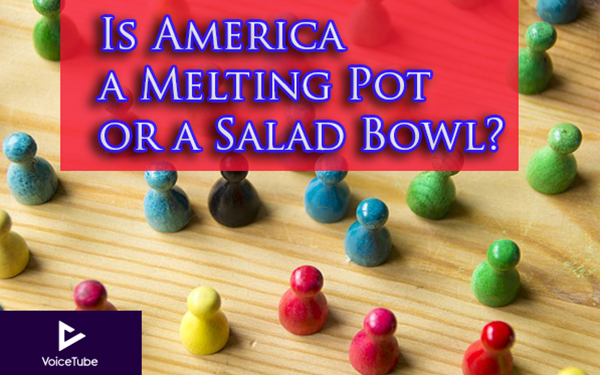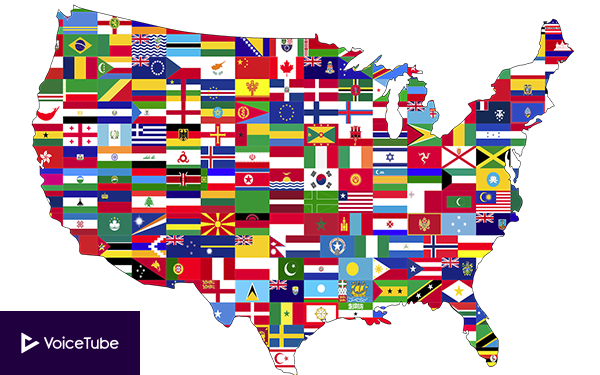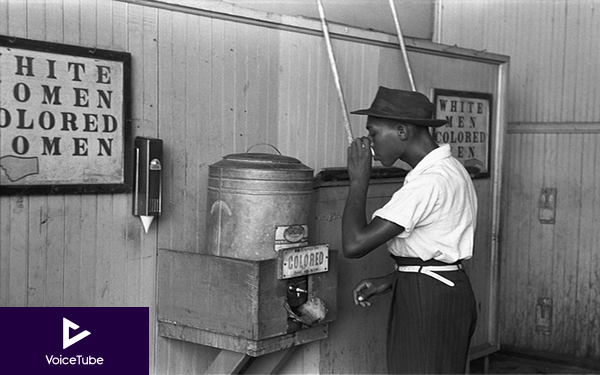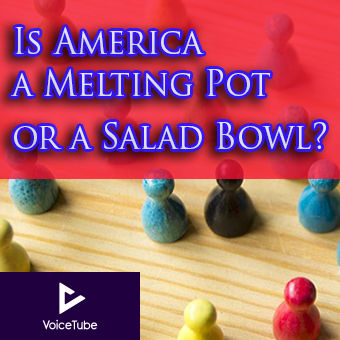The melting pot vs. salad bowl metaphors
Many people want to move to the U.S.A for work or school.
Understand the terms and what makes this multicultural nation so unique.

The Cultural Melting Pot vs. the Salad Bowl
Many of us grew up hearing the metaphor(1), “the U.S. is a melting pot(2),” a country where all kinds of different cultures melt together to form one common culture. However, a more modern metaphor suggests that America might actually be a salad bowl (3), a country where a society integrates different cultures while still allowing people to retain their individual cultural identities. This blog will explore the melting pot vs. salad bowl metaphors
We’ll explore both ideas and try to figure out whether or not the U.S. is a melting pot or a salad bowl. If you want more information on life in the U.S. as an immigrant, be sure to check out podcast #14 Land of Opportunity byRide the Vibes and be sure to review our last blog Slang and Tips To Date Online.
Defining Multicultural America
American culture is paradoxical(4) because, though it exists, there is no authentic American culture. It is hard to define as one entity because it is a mix of thousands of different cultures from around the world. This is part of the confusion between the melting pot vs. salad bowl analogies.

The Origins of the Melting Pot
The term “melting pot” was already in use by the 1780s (about the time of birth of the United States of America), but nobody knows when this phrase was coined.
As waves of European immigrants from different countries migrated to the States in the 19th century, they were expected to become American. This essentially meant that their old culture would be replaced; they were supposed to conform(5) to American values.
Did the Melting Pot Concept Work?
Did this work? It certainly never worked as well as advertised. Sure, most immigrants had to learn English, learned some American history, and abided by its laws and political ideology(6), but at the same time, there was still a lot of racism and xenophobia, and immigrants still hung on to their old cultures.
Racial intolerance created segregated(7) social groups. Generally, the Irish hung out with the Irish, the Chinese hung out with the Chinese, and so on. In the 1900s, more and more people from around the world were arriving in the U.S. Movements like the Civil Rights Movement in the 1960s began to change the way Americans looked at race.
We began to teach people about minorities (especially African Americans), and there were pushes to make America more accepting of cultural differences, but to this day, integrating everyone into one society is still a massive challenge.

Is the U.S. Truly a Melting Pot Then?
It wouldn’t be accurate to say that America is in no way a melting pot. There are still parts of American culture that do adhere to this concept.
Basic social interactions, like shaking hands, giving gifts on Christmas (even if you don’t celebrate the actual holiday) and how people converse in public are all aspects of the melting pot that do actually exist in the U.S.
That said, we might need a better, more modern analogy to describe what it’s like to fit into the fabric of America.

The Cultural Salad Bowl Analogy
A salad is filled with different colors, different smells, and a variety of different vegetables. We can tell a tomato from a cucumber. However, the tomato and cucumber fit in the same dish, and can even complement one another.
Since the 1960s, the U.S. has been compared to a salad bowl, which many people consider to be a more apt(8) analogy. Much like the different vegetables, different cultures coexist but retain their own identities.
The dressing that gives the salad its unique flavor is the law and the free market. All cultures need to abide by these rules. Besides that, cultures are free to speak their own language (though some Americans can be prickly about this), pray how they wish, and practice their own customs.
Asians still celebrate Lunar New Year, Latin Americans still celebrate Día De los Muertos, and there are all sorts of pocket communities that hold onto their native cultures and customs. There are even different churches, mosques, synagogues(9), and temples that represent many world religions.
Lastly, think of relationships and marriage or some of the more complex cultural elements. There is no law dictating who you marry or how you conduct your wedding. Different cultures are free to keep to their own traditions so long as they do not break the law.
The Salad Bowl Analogy Might Be the Better Fit
It’s not exactly a melting pot vs. salad bowl. America is both a melting pot and a salad bowl in some respects, but the salad bowl model seems to be winning out. People have become more tolerant of other cultures in the U.S., and it’s okay to worship different gods, celebrate different holidays, speak different languages, and so on.
The salad bowl model allows for more tolerance of other cultures, and while problems like racism and xenophobia still exist, the education system is generally doing a better job of informing students about different cultures and embracing(10) differences rather than holding onto prejudices.
The U.S. isn’t a perfect country by any means, but it’s a unique multicultural experiment with a lot of great aspects. Together, people from around the world are showing us that the future can be a salad bowl full of tolerance, diversity, and unique flavors that can only be discovered by embracing our differences.
Americans & Koreans Swap School Lunches
Vocabulary
1. metaphor (n.)
Def. a figure of speech in which a phrase is applied to an object or action to which it’s not literally applicable.
Ex. My favorite metaphor is: “Art washes away from the soul the dust of everyday life.”
2. melting pot (n.)
Def. a place where a variety of races, cultures, or individuals assimilate into a cohesive whole
Ex. Brazil’s another good example of a cultural melting pot.
3. salad bowl (n.)
Def. a metaphor for the way a multicultural society can integrate different cultures while maintaining their separate identities
Ex. Many people say the U.S. is more of a salad bowl than a melting pot.
4. paradoxical (adj.)
Def. seemingly absurd or self-contradictory.
Ex. Time travel is paradoxical if the time traveler returns to the past and does something that affects his ability to time travel.
5. conform (v.)
Def. to give the same shape, outline, or contour to: bring into harmony or accord
Ex. Our schools make us conform by making every student wear uniforms.
6. ideology (n.)
Def. a manner or the content of thinking characteristic of an individual, group, or culture
Ex. Communism was a popular political ideology in the early 20th century.
7. segregate (v.)
Def. to separate or set apart from others or from the general mass
Ex. The police segregated the two sets of fans in the stadium to avoid violence.
8. apt (adj.)
Def. unusually fitted or qualified
Ex. It’s apt to say that Taiwan has been the envy of the world during the COVID-19 crisis.
9. synagogue (n.)
Def. the house of worship and communal center of a Jewish congregation
Ex. My Jewish friend goes to the synagogue every Saturday.
10. embrace (v.)
Def. to take up especially readily or gladly
Ex. I embraced the fact that I was surrounded by a new culture.
Photos
Wood-wooden-desktop-diversity-love by MetsikGarden
united-unity-togetherness by GDJ
Discrimination-racism by Wikiimages
Salad-fruits-berries-healthy by silviarita
Sources
https://www.hoover.org/research/melting-pots-and-salad-bowls
https://sites.psu.edu/ajwcivicissues/2019/01/21/melting-pot-or-salad-bowl/
